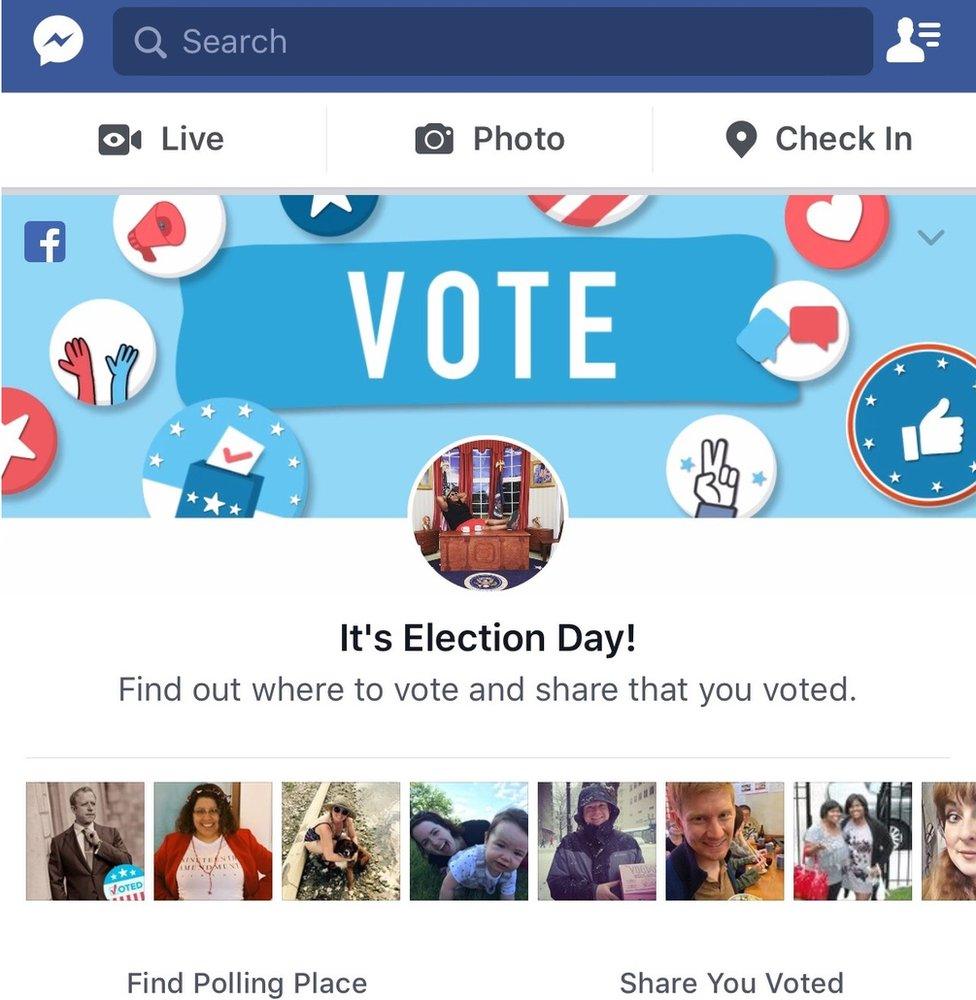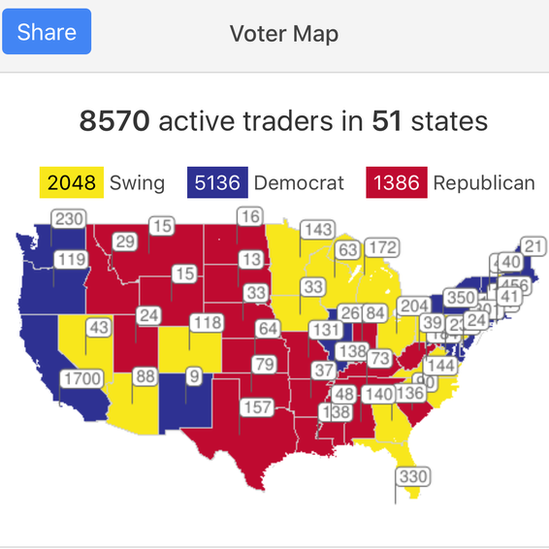US Election 2016: How Facebook is influencing the vote
- Published
Facebook is influencing the election - but perhaps not in the way you might think.
As it has in every major election since 2008, Facebook is offering users the option of broadcasting their civic-mindedness. On Tuesday, the site pointed Americans towards a special "I voted" widget on their profile page.

Clicking on the widget is not just frivolous boasting. According to an experiment conducted during the 2010 US election, the button was responsible for getting an additional 340,000 people to the polls, external.
The experiment was somewhat controversial because not every voter saw the same thing on their Facebook feed. Some users saw the button, some saw a general informational message and others saw nothing at all - and users weren't informed about the experiment.
It gave rise to the idea that by targeting specific types of voters, Facebook could potentially alter the result of an vote, external. But during subsequent elections, Facebook says it's showing the widget to all potential voters.
As of 19:00 Eastern Time on Tuesday, Facebook said more than 7.5 million people had used the "I voted" function. In 2012 the total number declaring "I voted" was around 9 million, external, and those voters skewed young, female and Democrat.
The company also revealed the top policy issues discussed on the social network on Election Day. The top five? Government ethics, religion, racial issues, crime and the economy.
Blog by Mike Wendling, external
More US election coverage from BBC Trending: Could vote-swapping help Clinton?

What if you could swap with someone planning to vote for a third-party candidate in a more relevant part of the country - making your ballot influential but still allowing the third-party voter to register their dissent?READ MORE
You can follow BBC Trending on Twitter @BBCtrending, external, and find us on Facebook, external. All our stories are at bbc.com/trending.